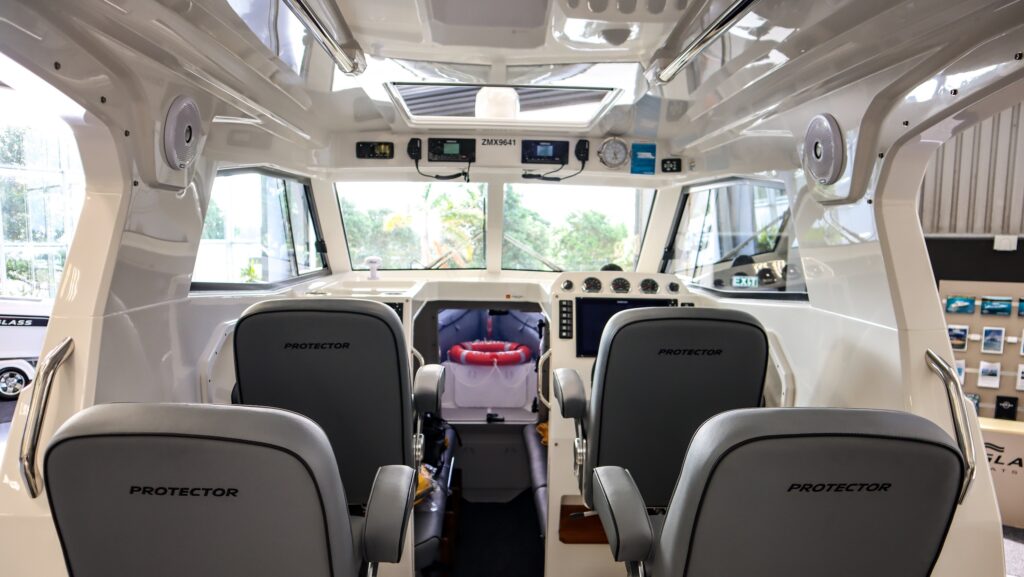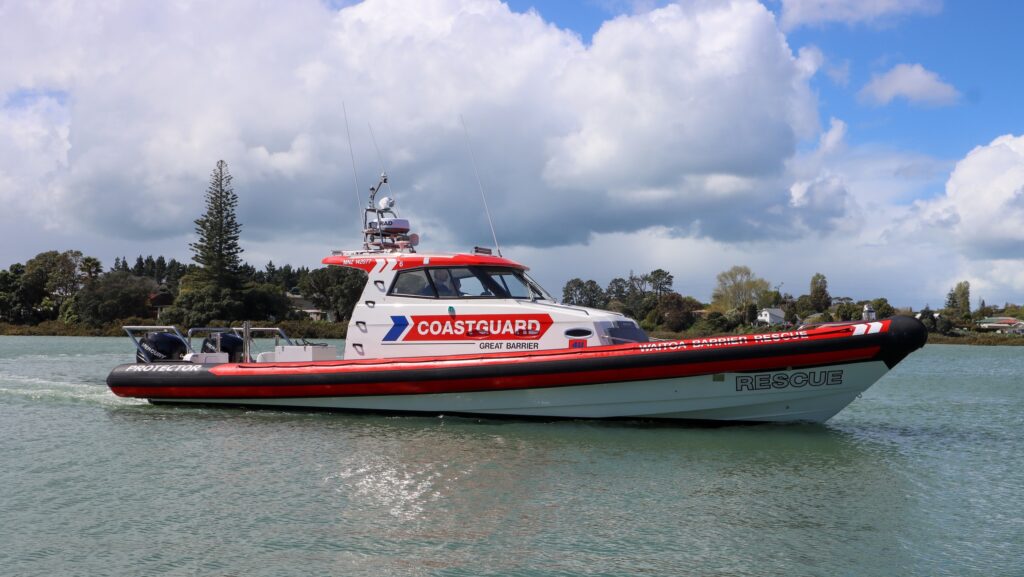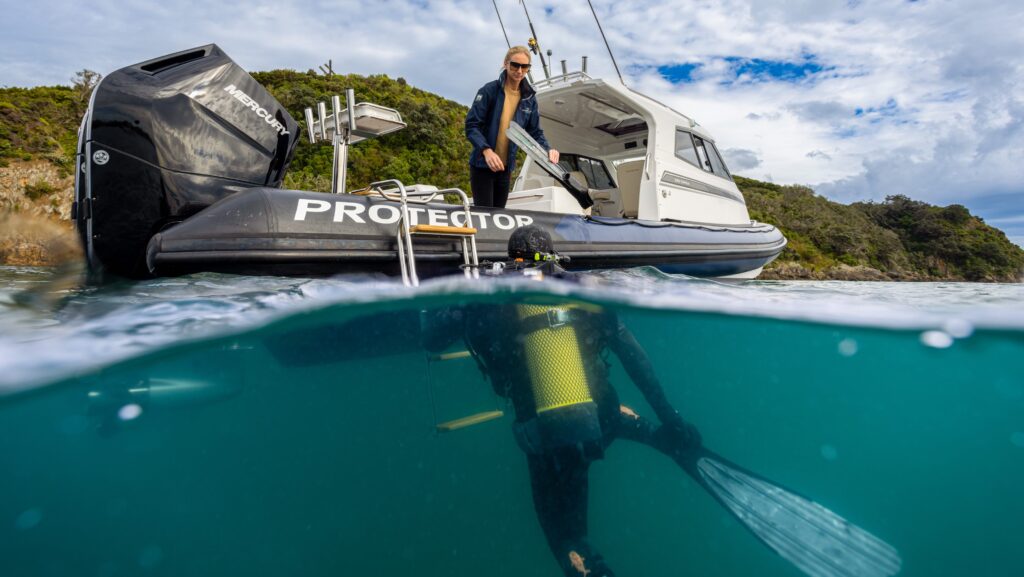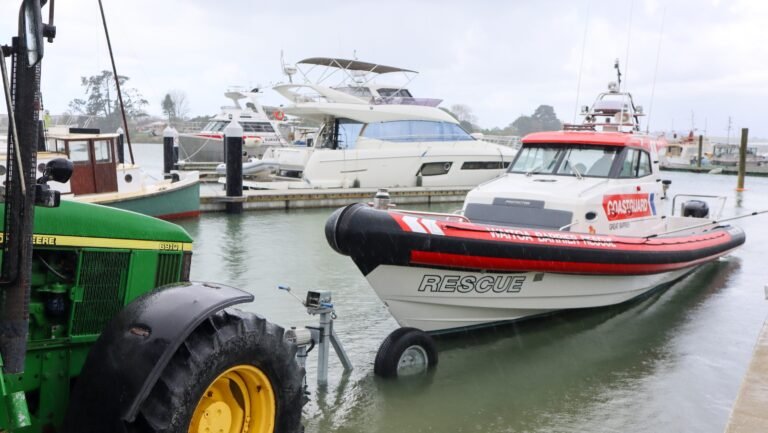Globally Maritime Agencies Embrace Multi-Role High-Performance RIBs
Globally maritime enforcement and operational agencies are rethinking how they specify and deploy their operational craft, says Protector Boats. And that includes their choice of high-performance rigid inflatable boats (RIBs). The long-established model of maintaining multiple specialist vessels – each dedicated to a single role – is steadily being replaced by a preference for multi-role platforms capable of tackling a range of assignments without sacrificing performance.
Andy Andrews, European representative for Protector Boats through PB Europe (part of the Ancasta Group), has witnessed this transformation from both sides of the industry. With a 25-year career in the Royal Navy followed by extensive work supplying and training operators in commercial RIB use, he has seen operational priorities shift in response to changing demands.
“We are seeing a clear move away from highly task-specific vessels,” says Andrews.
“Instead, agencies are prioritising adaptable platforms that can be configured for diver support, cargo transport, towing, or high-speed pursuit – often within the same shift cycle.”
A combination of operational, logistical, and strategic pressures is driving this change. Agencies are finding that consolidating fleets into fewer, more capable vessels streamlines operations, reduces maintenance schedules, and simplifies fleet management. The ability to transport these craft easily – whether by trailer or within a 40-foot container – also allows for rapid redeployment to new locations.
Performance is another decisive factor. With illegal operators increasingly using high-speed craft (MIN previously reported on people smugglers using well-known marine brands), enforcement agencies need vessels that can match or exceed those capabilities while also providing the capacity to integrate advanced surveillance systems, intelligence-gathering tools, or other specialist equipment. Crucially, these vessels must also deliver consistent performance in adverse conditions, ensuring all-weather readiness for critical missions.

The move toward adaptability is not simply about speed and agility, it is also about expanding the operational scope of each vessel. Andrews notes that many agencies now demand platforms that can provide diver support with easy water access and storage for gear, carry significant cargo loads ranging from humanitarian aid to specialist tools, and tow anything from distressed yachts to commercial workboats.
This evolution is already well under way in practice. In New Zealand, where Protector Boats are manufactured, the coast guard operates a national fleet of 24 Protectors in varying configurations, while the Norwegian Police and New Zealand Customs Service have also adopted the platform for missions where endurance and versatility are paramount.

Customisable approach meets wide range of operational demands
Protector’s success in this space lies in its customisable approach. Operators can configure everything from engine type and deck layout to seating arrangements and onboard facilities, enabling a single platform to meet a wide range of operational demands. Importantly, this adaptability extends to crew welfare. Enclosed helms, climate control, bunks, and galleys can all be incorporated for longer missions – features that Andrews believes directly enhance operational effectiveness.
“Crew wellbeing, and therefore endurance, is a critical factor,” he explains. “A vessel that offers shelter from the elements and space for rest can significantly extend operational capabilities.”
The implications for the sector are far-reaching. By reducing the variety of vessels in service, agencies can simplify training, reduce spare parts inventories, and concentrate budgets on fewer, higher-quality platforms. While single-role craft will always have a place in certain highly specialised areas, Andrews is confident the broader shift is permanent.
“The operational and economic benefits are clear,” he says. “For most agencies, a capable, adaptable, high-performance platform offers the best balance of flexibility and cost-effectiveness.”
Looking to the future, propulsion technology is expected to evolve further, with hybrid and electric systems entering the operational mix. However Andrews cautions that for now the range and endurance of conventional propulsion remain essential for most enforcement and commercial roles.
“Electric RIBs will have their place, but for the majority of multi-role operations today, conventional systems still deliver the speed, reach, and reliability required.”
As operational demands broaden and budgets remain under pressure, the emphasis on adaptability will continue to influence vessel design and procurement strategies. Platforms with proven multi-role capability – and the seakeeping to maintain performance in the toughest conditions – are set to be at the centre of the sector’s evolution.

The Benefits of Practicing Mindfulness
Mindfulness is a practice that involves being fully present and aware of your thoughts, feelings, and surroundings. It has gained popularity in recent years as a way to reduce stress, improve mental health, and enhance overall well-being. Here are some of the key benefits of practicing mindfulness:
1. Reduced stress and anxiety: Mindfulness can help reduce stress and anxiety by allowing you to focus on the present moment rather than worrying about the past or future. By staying present and aware of your thoughts and feelings, you can better manage stress and anxiety levels.
2. Improved mental health: Mindfulness has been shown to improve mental health by reducing symptoms of depression and other mental health disorders. By practicing mindfulness, you can develop a greater sense of self-awareness and self-compassion, which can help improve your overall mental well-being.
3. Enhanced focus and concentration: Mindfulness can improve focus and concentration by training your brain to stay present and attentive to the task at hand. By practicing mindfulness, you can develop the ability to tune out distractions and stay focused on the present moment.
4. Better relationships: Mindfulness can improve relationships by helping you become more present and attentive in your interactions with others. By practicing mindfulness, you can develop better communication skills, empathy, and compassion, which can enhance your relationships with others.
5. Increased self-awareness: Mindfulness can help increase self-awareness by allowing you to observe your thoughts, feelings, and behaviors without judgment. By practicing mindfulness, you can develop a greater understanding of yourself and your motivations, which can lead to personal growth and self-improvement.
Overall, mindfulness is a valuable practice that can have numerous benefits for your mental health, well-being, and relationships. By incorporating mindfulness into your daily routine, you can experience greater peace, clarity, and overall happiness in your life.

